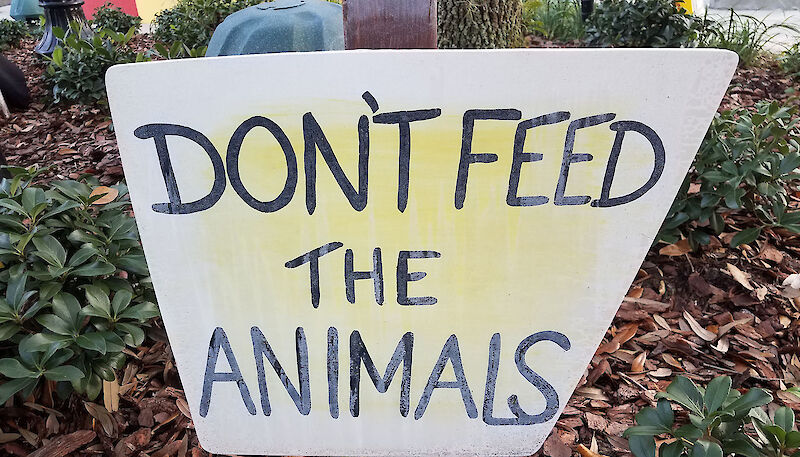Don’t Feed the Animals
This past week, I had the pleasure of watching a W3.5 match with my former student and now colleague at Chestnut Ridge, Seth Roberts. Seth has repeatedly taken his teams deep into the Playoffs, including a couple of Nationals appearances. He’s really good at his job!
There was a particularly close doubles match that Seth, the captain of the team, and I were watching. There was little to separate the teams with respect to the score. After the first set, I jokingly told my two friends: “This match is over. No matter how close it gets, our team will not win.” This ended up being true even though the Chestnut pair came back from 3-6 in a 2nd set tiebreak to send the match into a Super. What was it that allowed me to make my prediction in what was essentially a neck and neck match?
CHOICES. I was watching the patterns of play. A point that is won, despite the fact that the pattern was flawed, is a point won by luck. Since it is skill and not luck that determines the winner of a match 99% of the time, it was apparent to me that our team would not win this match.
The team captain made a perceptive remark: “We are not pros. The ball doesn’t always go where we want it to.” Correct! However, there are two types of errors that may occur in a match: 1) Poor choices; or 2) Execution errors. The captain was speaking of Execution. I completely agree with her on this point: “we are not pros.” You may not place the ball as accurately as you wish or miss a few sitters. That’s all ok (watch the ball!).
However, errors in choice must be all but eliminated. Here’s a clear example. On all of the doubles courts that evening, the #1 most damaging shot was a high forehand volley hit from close to the net. This was true both for our teams and our opponents. Here is a LAW which should not be violated: When the opponents are either in a net stagger formation or in a clear 1up/1 back formation, the ball should NEVER be hit to the closer player when you are playing from the back of the court. This includes lobbing the net player when her partner is at the baseline. Why? What if the lob goes short? Then you have gone from a neutral rally (say a 50% chance to win) to the opponent hitting an overhead (30% chance to win). If this happens often enough (in a close match five or six times), your choices have lost you the match.
In the example which I just gave, notice that the overhead for the opponent was a result of both types of errors happening at once. First, there was a poor decision. Then, that poor decision was compounded by poor execution. What happens if you play a weak rally ball (an execution error)? The opponent has an approach shot. So, another way to view your choice is this situation: would I rather be facing an overhead or an approach shot?
You can all benefit from adding more discipline to your choices. Well-played tennis has less variety than you might think.
In general, anytime you have played a shot that allows the opponent to hit from close to the net, you have violated one of the most basic tenets of good doubles tactics: DON’T FEED THE ANIMALS!

